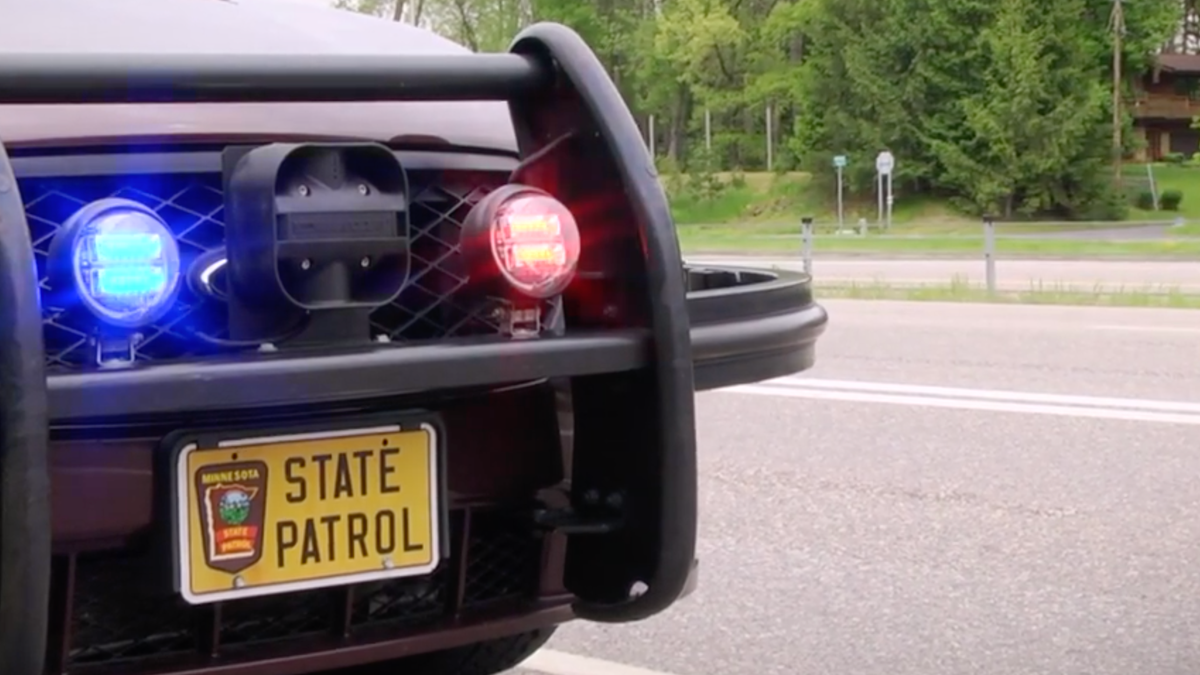Car crash death rates skyrocket during coronavirus shutdown in several states
Since the coronavirus shutdowns began, empty roads are leading people to take chances behind the wheel that end up costing them their lives, police say.
Get all the latest news on coronavirus and more delivered daily to your inbox. Sign up here.
Minnesota State Patrol Lt. Gordon Shank said he knows the routine all too well now. He pulls his patrol car into a driveway he's never been before, gets out, and knocks on the front door. And then he waits.
When the door opens, he's often the person who has to tell the person who answered the door that a loved one just died in a car crash.
"I think I can speak for law enforcement across the country when I say that's the worst part of this job," Shank said. "It really wears on you."
Since the coronavirus shutdowns began, people have been using the empty roads to take chances behind the wheel that end up costing them their lives, Shank said.
CLICK HERE FOR FULL CORONAVIRUS COVERAGE

Massachusetts transportation officials said 28 individuals died in crashes in April 2020, compared with 27 in April 2019, when traffic was at normal volumes. (Rob DiRienzo / Fox News)
Minnesota is among several states in which car crash death rates have spiked; Connecticut, Louisiana, North Carolina, Oklahoma have also seen similar trends, even with less traffic than ever. Speeding and distracted driving are leading the causes for car crash deaths amid the shutdown, Shank said, while drunken driving numbers in many states have actually fallen.
Lt. Shank said Minnesota has seen a big increase in people speeding with deadly consequences. In April 2019, Minnesota State Patrol reportedly stopped 58 people who were allegedly driving over 100 mph. This April, they stopped 143 drivers doing at least 100, he said – a 146 percent increase.
"We were expecting to see a dramatic decrease in the number of fatal crashes that were occurring out on the roadway, but that's just not what's happening."
SPEED CAMERA VIOLATIONS SKYROCKET ON EMPTY NEW YORK CITY STREETS DURING CORONAVIRUS SHUTDOWN
"The higher the speeds, less reaction time, the more injuries we have, the more fatal crashes we have," Shank said.
In Massachusetts, early data shows that the car crash death rate doubled in April, compared to the same time last year according to the state's highway administrator, Jonathan Gulliver.
"Drivers that are used to having congested roads are all of a sudden thing seeing these empty highways in front of them, empty roadways if they're in a local road and they're taking advantage of it," Gulliver said. He said that although the total number of deaths is about the same as last year, with 50 percent fewer cars on the road, people are dying in car crashes at a higher rate.
Connecticut Transportation Safety Research Center director Eric Jackson said when the shutdown began, they were anticipating the opposite.
"We were expecting to see a dramatic decrease in the number of fatal crashes that were occurring out on the roadway, but that's just not what's happening," Jackson said.

A Minnesota State Patrol patrol car is stopped on the side of the road. (Minnesota State Patrol)
While there have been 10,000 fewer crashes in Connecticut, the number of people killed has either increased or stayed that same, according to Jackson's data.
Now, with many states reopening and summer right around the corner, Gulliver said people are starting to drive again. Between the last week of April and the first week of May, Massachusetts highway data revealed a 50 percent jump in traffic, which is still far below the usual amount.
"Whether you call it quarantine fatigue or whatnot, there definitely was an uptick in traffic," Gulliver said, adding that he is hopeful that as more cars return to the roads, people will start to slow down.
CLICK HERE FOR THE FOX NEWS APP
Lt. Shank hopes that the Patrol's stepped-up presence along highways will get people to pump the brakes and put down their phones, so he doesn't have to visit their families' homes next.
"You have to tell that family member that mom, dad, brother, sister, daughter, son, whoever it may be," Shank said. "It really wears on you. It takes a toll on you. And it's really hard to think about, the fact that It's completely preventable in many situations."


